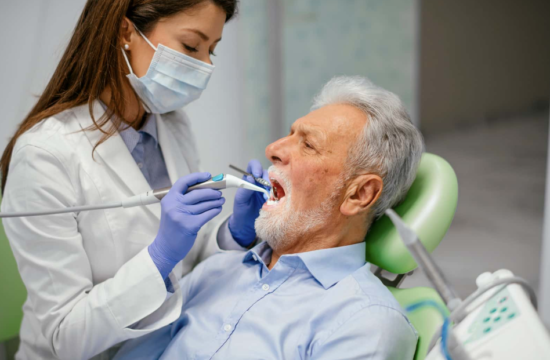Jaw Surgery: A Life-Changing Solution to Correct Facial Irregularities
Facial irregularities can significantly impact an individual’s self-esteem and overall quality of life. These irregularities can range from misaligned jaws to overbites or underbites, causing functional and aesthetic concerns. However, with advancements in medical technology, jaw surgery has emerged as a life-changing solution to correct these facial irregularities.
Understanding Jaw Surgery
Jaw surgery, also known as orthognathic surgery, is a specialized procedure aimed at correcting irregularities in the jaw and facial structure. It involves repositioning the upper jaw (maxilla), lower jaw (mandible), or both to achieve proper alignment and balance. The procedure is usually performed by an oral and maxillofacial surgeon in collaboration with an orthodontist.
Every case of jaw surgery is unique, as the procedure is tailored to meet the specific needs of the patient. Prior to the surgery, comprehensive evaluations and examinations are conducted, including X-rays, photographs, and facial measurements. These assessments help in developing a personalized treatment plan.
The Benefits of Jaw Surgery
Jaw surgery offers numerous benefits that go beyond mere cosmetic enhancements. While the primary goal is to correct facial irregularities and improve facial harmony, there are several other advantages to undergoing this procedure:
- Improved Bite and Dental Function: Jaw misalignment can often lead to difficulties in biting, chewing, and speaking. Jaw surgery helps align the jaws properly, improving overall bite function and reducing strain on the teeth, jaw joints, and muscles.
- Enhanced Facial Symmetry: Irregularities in the jaw can contribute to an asymmetrical appearance. By realigning the jaws, jaw surgery can improve facial symmetry, resulting in a more balanced and pleasing aesthetic.
- Reduced Breathing Problems: Certain jaw irregularities can obstruct the airway, leading to breathing difficulties and sleep apnea. Jaw surgery can address these issues by expanding the airway and improving respiratory function.
- Relief from TMJ Disorders: Temporomandibular joint (TMJ) disorders can cause chronic pain and discomfort in the jaw joint. By correcting jaw misalignment, jaw surgery can alleviate TMJ-related symptoms and improve overall jaw function.
- Boosted Self-Confidence: Facial irregularities can have a significant impact on an individual’s self-esteem. Jaw surgery not only improves facial aesthetics but also enhances self-confidence, allowing individuals to feel more comfortable and confident in their appearance.
Frequently Asked Questions (FAQs)
Here are some common questions about jaw surgery:
- Who is a candidate for jaw surgery?
- What is the recovery process like?
- Are there any risks or complications associated with jaw surgery?
- Will insurance cover the cost of jaw surgery?
- How long does the entire jaw surgery process take?
Jaw surgery may be recommended for individuals with severe jaw irregularities that affect their oral health, facial aesthetics, or overall quality of life. A consultation with an oral and maxillofacial surgeon is the best way to determine if jaw surgery is appropriate for a specific case.
The recovery period after jaw surgery varies from person to person. It generally takes a few weeks for the initial swelling and discomfort to subside. A liquid or soft food diet may be necessary during the initial healing phase, gradually transitioning to a regular diet as advised by the surgeon. It is important to follow post-operative instructions, including any recommended physical therapy or orthodontic treatment.
As with any surgical procedure, there are potential risks and complications associated with jaw surgery. These may include infection, bleeding, nerve injury, and adverse reactions to anesthesia. However, these risks are relatively rare and can be minimized by choosing an experienced surgeon and following all pre- and post-operative instructions.
Insurance coverage for jaw surgery depends on various factors, such as the severity of the condition, the functional impact on oral health, and the individual insurance policy. It is advisable to consult with both the oral and maxillofacial surgeon and the insurance provider to determine the extent of coverage.
The duration of the entire jaw surgery process can vary depending on the complexity of the case. It typically involves several months of orthodontic preparation before the surgery, followed by the surgical procedure itself. The recovery period can also take several weeks to months, during which regular follow-up appointments will be scheduled to monitor progress.
Jaw surgery is a life-changing solution for individuals with facial irregularities. It not only improves facial aesthetics but also enhances bite function, alleviates breathing problems, and boosts self-confidence. If you are considering jaw surgery, consult with a qualified oral and maxillofacial surgeon to explore this transformative option.
For more information on jaw surgery and its benefits, you can visit Example Link 1 or Example Link 2.






